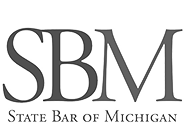What Are The Most Common Probation Violations That Occur In Michigan?
Probation violations in Michigan fall into four general categories.
- The defendant fails to continue reporting to their probation officer. These are instances where a defendant either shows up and doesn’t properly report to the probation officer (i.e., does not fully admit or remain truthful about the information they’re required to tell the probation officer), or fails to show up for meetings, or just blows off the process and responsibilities and obligations altogether. This is a common phenomenon and probably accounts for around 15-20% of probation violations that we see.
- The defendant fails to pay their fines and costs while on probation. This is the most common cause of probation violations. Usually, failure to pay probation fines and costs is dependent on a person’s poverty level and lack of access to sufficient funds. Many people simply cannot afford to keep paying the fines and costs associated with probation. In some cases, this is enough to get them incarcerated. In other cases, defendants blow up their probation chances because they know they aren’t going to be able to maintain payments anyway. Fortunately, there has been a big push in Michigan to prevent Judges from sending defendants to jail or prison simply for their failure to pay their outstanding fees, due to the acknowledgment that a great majority of defendants are among the poor and minority populations that simply cannot afford to take the majority of their paycheck to pay for the court ordered fees.
Importantly, in the hands of a conscientious, understanding probation officer who is actually geared toward helping defendants, missing payments for lack of access to funds does not necessarily need to be written up and pursued as a violation. However, it is still technically a probation violation, and it is always possible for a defendant to get violations on their probation for not being able to pay their fees.
- The defendant fails to comply with the terms of probation. This usually happens when a defendant fails to attend, comply with, participate in, and/or complete mandated educational or therapeutic programs, such as AA, therapy, or a class. It can also happen if a defendant relapses on drugs/alcohol, refuses to take drug tests, or refuses to comply with terms like curfew or notifying your probation officer before you leave the state.
- The defendant is caught committing another crime while on probation. If you are caught committing or charged with a crime—or even accused in some cases—it can constitute a probation violation that can wind you up in jail or prison.
What Happens If Someone Is Found To Have Violated The Terms Of Their Probation In Michigan?
In Michigan, when someone violates the terms of their probation, a few different things can happen. The outcome depends on the individual case, the defendant, and the probation violation, and is usually at the discretion of the probation officer.
Ideally, sentencing by criminal judges throughout the country (including in Michigan) should have two aspects to it: punishment and education. That is, they want to punish you for your behavior, and they want to educate you so that you don’t do it again. It should be noted that in reality, the definition of a criminal case is one that deals with punishment (i.e., that carries with it the potential punishment of time in jail or prison), and that education is not guaranteed. That said, the aim of sentencing should ideally be punishment and education. The same should be true of probation, and this should be taken into consideration by probation officers when deciding on how to respond to probation violations.
When someone violates the terms of their probation, outcomes can include:
- Conviction and Incarceration: In some cases, the defendant can be cited for their probation violation, and then convicted and sent to jail or prison right off the bat.
- Delayed Sentencing: Sometimes, the Court won’t give you any time up front, but will delay or suspend the incarceration sentence they might otherwise give you. They delay that sentence to jail or prison, until you either make another probation violation (in which case you may go to jail), or until you successfully complete the rest of the terms of your probation. If you successfully complete the rest of your probation, the Court will review your progress and see how you’ve been doing, and will have the power to waive jail time if they decide you merit that waiver.
If you do get sent to jail, all hope is not lost. In fact, there will often be educational opportunities that many people would not have otherwise been able to access or commit themselves to fully. Many times, people go to jail and are required to do educational programs while they’re there, such as counseling programs and AA. The more courses and educational opportunities you take, the better it is for your case. For instance, if you pass through and complete multiple phases or steps of a course in jail, your chances for being released early to start your probationary status can greatly improve.
These are actually real opportunities for learning. Many times, when people say there are no educational opportunities in a prison or jail, that’s usually a farce. However, my experience has shown that Michigan prisons really do have the capacity to educate incarcerated people with acceptable programs, depending on the facility. If you find yourselves incarcerated for any reason, sign up for as many educational and therapeutic programs you can…at a minimum it makes your time while locked up with a purpose and can seemingly go a little quicker. Make no mistake, being locked up sucks, but try to make the most of it while you can.
My educated guess is that education will be stressed more and more in jail and prisons in the next 5-10 years. The government is getting hammered on just incarcerating people, especially here in Michigan, without having good low recidivism rates to show for it. They are going to have to adapt and choose another tactic, which is to educate and truly rehabilitate defendants while they’re in locked up, with innovative training programs to provide defendant’s upon release, good job opportunities and programs so their chances of reoffending significantly diminish.
While Judges and probation officers can be forgiving and understanding about minor probation violations, they also should order educational programs and opportunities that are community-based. These programs can be run by the counties, the state, and private entities that have therapy programs for counseling, drug education, and inpatient programs that lead to intensive outpatient programs. Generally, there is lots of discretion that a judge can use in trying to point a defendant in the right direction. It is amazing to watch an otherwise indifferent and lost defendant who has never taken advantage of a community based program, for substance abuse and support, and see how they develop into committed individual who wants to take action to save their own lives for themselves and their family! Truly inspiring.
What Are Some Common Misunderstandings That Happen With Probation, And How Can They Be Avoided?
This is a central question to the problem with people on probation who generally do not have good self management skills and/or are suffering from substance abuse or mental health debilitation.
One thing to keep in mind—and one of the reasons organizations like CourtWorks were started in the first place—is that so many of the defendants in these cases are simply buried in paperwork. This was found in research undertaken on the subject, and has been expressed anecdotally to me by many probationers over the years. Research has found that the Courts are similarly buried in paperwork, including unfiltered physical paperwork and paperwork in electronic form as email. This paper flow is a bottleneck for the court that needs to organize itself not just for the benefit of an efficiently run court, but for the benefit of the defendant as well.
As such, defendants may be going through their probation and get overwhelmed by the hundreds of pieces of paper that they have to collect from various sources and deliver elsewhere by a specific time. At one point, there were papers that probationers had to collect from the court, from therapists, from AA meetings, from employers, from drug testing facilities, and from other places and facilities. Then, they had to deliver them all to the court by a certain deadline. All along, there was a looming threat that probationers would be sent to jail if they failed to turn something into their probation officer. This can get very overwhelming for anyone, let alone a defendant struggling with substance abuse and/or mental health issues.
The same is largely true of the probation officers themselves. They’ve got dozens, sometimes hundreds of defendants on supervision and probation. The person in charge of the defendant files is often a clerk that is making just above minimum wage with little training, and has to try and organize thousands and thousands, sometimes tens of thousands of pieces of paper without any good management or filtering program.
What organizations like CourtWorks does is help the Courts organize all of their information in an electronic format, with a management system that is similar to the patient portals now used within the healthcare system. Before the Electronic Health Record (EHR) and patient portal system, all those thousands of patients’ records were stored in thousands and thousands of physical files throughout doctors’ offices, hospitals, and clinics. None of those clinics, doctors, or hospitals were communicating with each other well, let alone allowing patients to access any of their own medical records at a moment’s notice.
We recreated the EHR and patient portal type of system for the criminal justice community. It allows the Courts, the clerks and the defendants to keep their records in an easy-access application. Defendants—who are oftentimes busy working multiple jobs and unable to drive due to a suspended license—no longer have to collect and deliver nearly as much paperwork.
Instead, they now have easy access from their phone or computer, allowing them to clearly see the requirements of their probation, as well as any problem areas, how to access outside agencies, whether they have to test or get educated, and when their next report date is. CourtWorks give them alerts every single month, week, and day if they have a report date due or if they missed one. This management system is good for defendants and the courts, and generally makes it easier to get better probation outcomes.
For more information on Common Probation Violations In Michigan, a free initial consultation is your next best step. Get the information and legal answers you are seeking by calling (800) 710-0529 today.
Awards and Accolades



